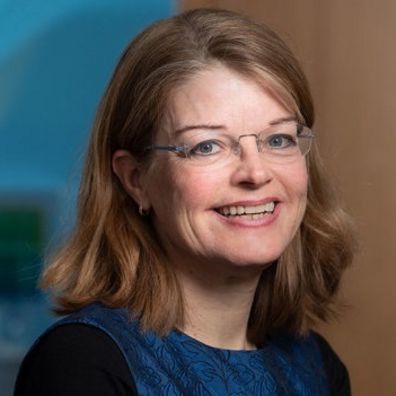Prof Dr Dagmar Schäfer
Germany
Managing Director, Max Planck Institute for the History of Science, Berlin
DAAD-Year Scholarship 1990–1991

Prof. Dr. Dagmar Schäfer
© DFG / David Ausserhofer
While she was a student, Dagmar Schäfer developed a strong interest in a global, non-Eurocentric history of science and technology. She placed special emphasis on China, where she was able to deepen her knowledge of Chinese studies and gain valuable insights with a DAAD scholarship in 1990 and 1991. She received her doctorate in Chinese studies, Japanese studies and political science in 1996 at the University of Würzburg, where she completed her habilitation in 2005.
Receiving the Leibniz Prize for her academic work is an excellent encouragement “to continue a transnational agenda in the history of science and to ask new questions about knowledge, its resources, stories and applications in the past and present. Dagmar Schäfer
New impetus in the Far East
Dagmar Schäfer’s stay in the Far East with a DAAD scholarship enabled her to form a connection that continues until today. She currently holds two visiting professorships in China, one of them at the School of History and Culture of Science in Shanghai. One focus of her research lies on the paradigms that determine discourse on technological development in the past and present. Schäfer’s studies on China have especially cast new light on the development of knowledge there since the early modern era and, as a result, also broadened the view of the global development of science and technology.
Foundations for new research approaches
With her book, The Emperor’s Silk Clothes. State Silk Factories in the Ming Period (1368¬–1644), Dagmar Schäfer created a starting point for a research approach which examines the technologies, processes and structures, predominantly in premodern China, that led to different knowledge systems. The main question here revolves around how knowledge is generated from actions and then recorded and manifested in artefacts. Schäfer’s studies led to the directorship of an independent research group on the history of science and technology in China at the Max Planck Institute for the History of Science (MPIWG) in Berlin.
Ground-breaking work in the history of science and technology
Dagmar Schäfer’s most important work, The Crafting of the 10,000 Things: Knowledge and Technology in 17th-Century China (2011), broadens and deepens this perspective. The publication made a fundamental contribution towards a better understanding of European and Chinese developments and also made it possible to compare them in a more balanced way. The content of this monograph threw light on the changing role of artefacts – for example, texts, objects and spaces – in the creation, distribution and use of scientific and technological discoveries.
This publication’s importance for research was underlined, among other things, by the award to Dagmar Schäfer of the Joseph Levenson Book Prize and the Pfizer Award. After holding the Chair of China Studies and History of Technology at the University of Manchester for a year from 2012 to 2013 she returned to the Max Planck Institute for the History of Science as director of the newly founded Department III Artifacts, Action and Knowledge.
Transnational agenda in the history of science
In Berlin, where she became managing director of the Max Planck Institute for the History of Science in July 2019, Schäfer also lectures at the Technische Universität (TU) and the neighbouring Freie Universität (FU).
In 2020 the DAAD alumna is being honoured with the Gottfried Wilhelm Leibniz Prize, Germany’s most prestigious research award, for her contributions to the global development of science and technology.
Schäfer says that receiving the Leibniz Prize for her academic work is an excellent encouragement “to continue a transnational agenda in the history of science and to ask new questions about knowledge, its resources, stories and applications in the past and present”. Focusing public attention more firmly on this research will continue to be important for her in the future.
Dagmar Schäfer has long been highly respected among experts. Her expertise is in demand from Beijing to Princeton and has already brought her teaching appointments all over the world. Today, when the gap between “western” civilisations and China appears to be increasing, Dagmar Schäfer’s insights are perhaps more important than ever for mutual understanding.
Stand: 2020-04-07